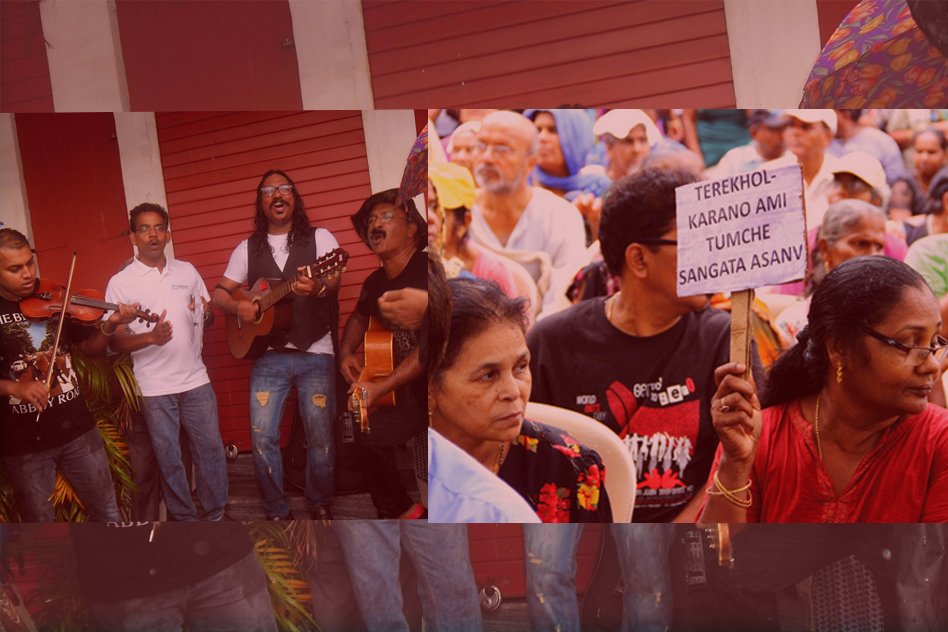Crony capitalism cannot survive unless there is collusion between those in power and their rich vote banks. It does not matter if, in the process, egalitarianism is thrown to the winds. In the world’s largest democracy corruption in the matter of governance and administration is normalised as a part and parcel of life, without any regard to those poor people who unjustly have to pay the price.
This has been proved yet another time by the off-handed manner in which Goan Chief Minister Parsekar has rubbished a fact-finding report submitted by Sandip Jacques which has nailed the Goan government for allowing Leading Hotels Pvt Ltd to illegally acquire the land in Tiracol village of North Goa on the shocking ground that two powerful private projects proponents opposed the inquiry. It is to be noted that the findings of the report were kept hidden by the government despite its promise to Court that they would be made public. However, The Herald has a copy of the same and it clearly opposes land acquisition.
Leading Hotels and its controversial project:
The Leadings Hotels Pvt Ltd – Leading Hotels of the World, Ltd. (LHW) is a hospitality consortium owned by Hotel Representative, A.G. based in NY, USA with more than 375 hotels and resorts in over 75 countries. Leading Hotels Limited plans to build a resort with 198 villas and a PGA standard championship golf course which will occupy 90 % of the land in Tiracol village, North Goa. It first visited the village in 2007. At that time Indian National Congress’ Pratapsingh Rane (till June) and then Digambar Kamat (after June) was Goa’s Chief Minister.
Illegal acquisition of land:
The village in question is home to around 60 families with a strength of about 200 people. The company officials bought the land from the state government claiming that the land is barren and there are no tenants and mundkars in the village. Goa Foundation, an environmental organization came to know of some illegal activity on behalf of Leading Hotels in 2011 and filed a PIL in the High Court. Since then the legal battle has been going on.
According to the locals, their Gram Panchayat sold them out while the residents were kept in the dark. The regulations for acquiring land laid down by Town and Country Planning were revealed to the Panchayat. The Panchayat said that they would seek legal advice and refused to revoke the permission as ordered by the Secretary of TCP.
Bones of Contention between the company and the villagers:
New job opportunities Vs traditional ones
Leading Hotels asserts that it does not intend to enter the village or displace the villagers but to provide them alternative job opportunities through the intended project. However, the villagers revealed to Video Volunteers that if the project goes ahead it is bound to impoverish them by taking away their sustainable sources of income which include cashew plantations, fishing, and small local restaurants which will not be able to survive the competition.
90% of the land available at Tiracol village has been acquired by the Leading Hotels, measuring 13, 00, 000 square meters. Only 10% of the land will be left to the tenants if the project gets started – enough to provide them shelter, but at the cost ofabout Rs 1 lakh annual income from agriculture and related activities. Besides, there will be nothing to fall back upon for these tenants in case of emergencies.
Barren land or fertile?
In its advertisements regarding the proposed villa and gold course in local newspapers, Leading Hotels provides the tagline, ‘From Barren to Beautiful’. However, the hotel chain’s own Impact Assessment shows that there are 19,000 trees and plant species on the property and at least 1966 trees will be felled for the project!
According to village residents, the entire hill is covered with lush green vegetation and sprawling cashew plantations. Survey numbers 3, 4, 5 and 6 are full of trees, not few but thousands. For felling them a special permission is needed from government authorities. Cutting down those trees would not only mean loss of livelihood but also a dramatic rise in the surrounding temperature.
Depletion of water
In its own environmental impact assessment report, Leading Hotels estimates that the resort will use 2,55,000 litres of water per day, earmarking 450 litres per tourist per day. The CRZ clearance report states that it will require15,00,000 litres per day.
100 households in the smallest village in Goa depend on 10-12 wells for irrigation purposes, not for domestic use. They dry up by March. The government has allowed Leading Hotels to install 17 borewells, 120-200 feet deep, expected to use 2500 cubic metres of water daily. To make up for this crunch on resources Leading Hotels has offered to replenish ground water through rain-water harvesting and has promised to provide 1000 litres to each family.
Water from Tillari dam is supposed to be used for the project. However, locals opine that Tillari is really fa…











